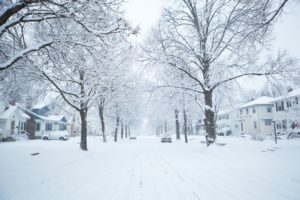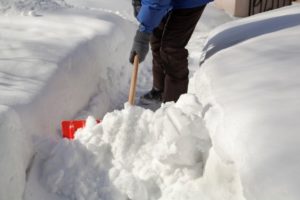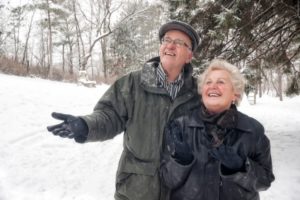It’s not easy being a Minnesotan in winter. In fact, it can be dangerous, especially if you or your loved one is an older adult. Here are a few winter-specific health tips to keep you and your loved ones healthy and safe.
 Hypothermia
Hypothermia
Hypothermia occurs when the body’s temperature falls below 95 degrees. When this occurs, the body’s organs, including the heart, lungs, and brain, do not function normally. Extreme hypothermia can lead to organ failure and death. Hypothermia is a greater concern for older adults for several reasons. First, the shiver response in older adults is diminished. Next, some chronic diseases like diabetes lead to decreased sensation and ability to sense falling body temperature. Additionally, some medications- even over the counter cold medicines- can alter the body’s response to cold and cause a quicker onset of hypothermia.
Signs of hypothermia include slowed or slurred speech, sleepiness, slow or shallow breathing, confusion, shivering, lack of coordination or clumsiness, and weak pulse. Hypothermia is a medical emergency. If you suspect you or someone else has hypothermia, contact 911 immediately.
You can prevent hypothermia by limiting your time outdoors on cold days. Be sure to set your indoor thermostat to at least 65 degrees at all times as hypothermia can occur indoors as well. If you do go outside, bring a hat, gloves, and scarf with you, even if you think you won’t be out long. And dress in layers. A few thinner layers will keep you warmer than one thick layer.
Shoveling Snow
Although shoveling snow is often necessary for homeowners and others, it can be a dangerous activity for older adults. An estimated 100 people die from heart attacks in the US every year specifically from shoveling snow. Why is this common wintertime task so dangerous for your heart? Shoveling is particularly strenuous work because it involves the upper body rather than the legs. Your heart has to work extra hard in cold weather because cold makes blood vessels constrict (become smaller), which raises your blood pressure and pulse. Especially for people that don’t exercise regularly or have heart disease, this extra strain can be too much. Older adults should check with their healthcare providers before getting out the shovel.
Falls
Did you know that the rate of falls for people in Minnesota nearly doubles between the months of December and March? We can attribute this directly to our snowy and icy winters. Falls on the ice can be dangerous for anyone, but older adults are at significantly higher risk for injury with falls due to thinner bones and slower reflexes. Falls on the ice can result in serious injuries like broken bones and brain bleeding, which can be deadly.
Seniors should take extra precautions if going outside in icy conditions. Always make sure you walk in areas that have been cleared of snow and salted or sanded for ice. Don’t walk somewhere that you cannot see well or that looks wet. Wear boots with good grip. If you use a cane or walker, replace the rubber tips regularly before they are worn down and smooth instead of grippy. And always walk with your hands out of your pockets. This ensures better balance.
Carbon Monoxide
Carbon monoxide, or CO, is an odorless, tasteless and potentially deadly gas that is released from partially burned fuel. This means anything that uses fuel in your home – the furnace, gas appliances, fireplaces, wood burning stoves, engines, generators, grills, and lanterns – can emit CO. Carbon monoxide poisoning happens more often in the winter months because we burn fuel to stay warm. CO replaces oxygen in your body, leading to suffocation of your organs, particularly the brain. Breathing in a lot of CO can be deadly in just minutes.
Symptoms of CO poisoning include headache, dizziness, weakness, upset stomach, vomiting, chest pain, and confusion. If you or someone else is experiencing these symptoms, go outside for fresh air immediately and call 911.
You can minimize your risk of CO poisoning by installing CO detectors in your home and checking them monthly to make sure they are working properly. Have a qualified technician check your furnace and appliances every year to ensure proper venting and repair. If you have a chimney, have it cleaned and checked for blockages every year.
 Minnesota winters can be beautiful, but also come with additional risks, especially for older adults. Make sure you and your loved ones stay safe and warm this winter season!
Minnesota winters can be beautiful, but also come with additional risks, especially for older adults. Make sure you and your loved ones stay safe and warm this winter season!
Here at Twin Cities Physicians we care about you and want you to be safe. Winter can be brutal (especially in Minnesota) but that doesn’t stop us from visiting you. Contact us at 763-267-8701 if you have any questions regarding our services or what we do!

